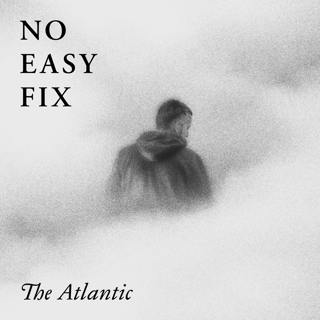
Ed Yong
A quarter-million Americans have now died of COVID-19. The spread of the virus is as bad as it’s ever been. And it’s almost certainly going to get much worse. But with the president abdicating responsibility and refusing to begin a transition, it feels as if we’re headed into unthinkable danger without any sense of who’s in charge. Staff writer Ed Yong wrote about America’s unpreparedness for a pandemic in 2018 and his reporting has led the conversation about the coronavirus for months now. He joins the show to explain how the country got to this point, what he thinks a Biden administration could do come January, and why he’s more hopeful about a society sticking together in a disease than he was two years ago. Support this show and all of The Atlantic’s journalism by becoming a subscriber at www.theatlantic.com/supportus Learn more about your ad choices. Visit megaphone.fm/adchoices
20 Nov 202033min

Abigail Spanberger
The Virginia Congresswoman shares her concerns over President Trump’s post-election actions and what she considers the lessons of 2020 for her fellow Democrats. Before coming to Congress as part of the Democratic wave in 2018, Spanberger spent her career as an undercover operative in the CIA. She talks about what it was like going from a false alias to a congressional seat, why she ran in the first place, and what she thinks when people compare her group of friends in Congress to the ‘Squad.’ Support this show and all of The Atlantic’s journalism by becoming a subscriber at theatlantic.com/supportus Learn more about your ad choices. Visit megaphone.fm/adchoices
13 Nov 202036min

Brian Stelter
Between the pandemic and President Trump, election night this year will be unlike any other. As usual, television news networks are the narrators of our democracy, but what will they do if the president claims an unconfirmed victory? With the stakes so high, will they apply the lessons they learned these past four years? CNN’s Brian Stelter shares his thoughts on broadcasting the president’s words live, how important the Fox News alternate universe will be, and what television news’s future is in a Biden presidency or a Trump second term. Support this show and all of The Atlantic’s journalism by becoming a subscriber at www.theatlantic.com/supportus Learn more about your ad choices. Visit megaphone.fm/adchoices
29 Okt 202028min

Tony Schwartz
The man who wrote The Art of the Deal reflects on Donald Trump, his presidency, and what the coming weeks could bring. Schwartz says Trump’s “primary motivation is dominance” and “there is nothing Trump fears more than failure.” And with the election little more than a week away, Schwartz thinks Trump believes he’s going to lose, “probably even more than he did four years ago.” Support this show and all of The Atlantic’s journalism by becoming a subscriber at theatlantic.com/supportus Learn more about your ad choices. Visit megaphone.fm/adchoices
23 Okt 202031min

Hillary Clinton
The former Secretary of State and 2016 Democratic nominee discusses President Trump, the pandemic, and election disinformation. Support this show and all of The Atlantic’s journalism by becoming a subscriber at theatlantic.com/supportus Learn more about your ad choices. Visit megaphone.fm/adchoices
9 Okt 202040min

Barton Gellman
With the election only weeks away, President Trump is down in the polls, sowing doubt about the integrity of the vote, and refusing to commit to a peaceful transfer of power. When he accepted his party’s nomination at the Republican National Convention on August 24th, Trump summarized his position: “The only way they can take this election away from us is if this is a rigged election.” What happens if a president loses reelection, but won’t accept the outcome? Staff writer Barton Gellman tried to answer that question in the cover story of this month’s Atlantic. He joins Edward-Isaac Dovere to explain what he found. Learn more about your ad choices. Visit megaphone.fm/adchoices
30 Sep 202024min

Howie Hawkins
In 2016, the Green Party won more votes in Pennsylvania, Michigan, and Wisconsin than Donald Trump’s margins for victory. As a result, many Democrats blamed the progressive party for Clinton’s electoral college loss and have worked this year to keep the party from competing in key states. Following Democrats’ challenges over paperwork issues, courts in Wisconsin and Pennsylvania removed Green Party names from presidential ballots this week. Howie Hawkins, the Green Party’s nominee for president and a co-founder of the party, joins Isaac Dovere to discuss his candidacy. Is the Green Party being used as a spoiler? What does he make of Kanye West’s presidential campaign? And does he fear his party may again face accusations that they put Donald Trump in the White House? Support this show and all of The Atlantic’s journalism by becoming a subscriber at: theatlantic.com/supportus Learn more about your ad choices. Visit megaphone.fm/adchoices
17 Sep 202026min

Mandela Barnes
Elected at 31, Wisconsin’s Lieutenant Governor is a young Black progressive and the face of a new Democratic party in the Midwest. With the nation’s attention on the shooting of Jacob Blake in Kenosha, Barnes joins Isaac Dovere to discuss President Trump, the Milwaukee Bucks, and what he thinks Democrats need to do to win in November. Support this show and all of The Atlantic’s journalism by becoming a subscriber at theatlantic.com/supportus Learn more about your ad choices. Visit megaphone.fm/adchoices
3 Sep 202031min






















